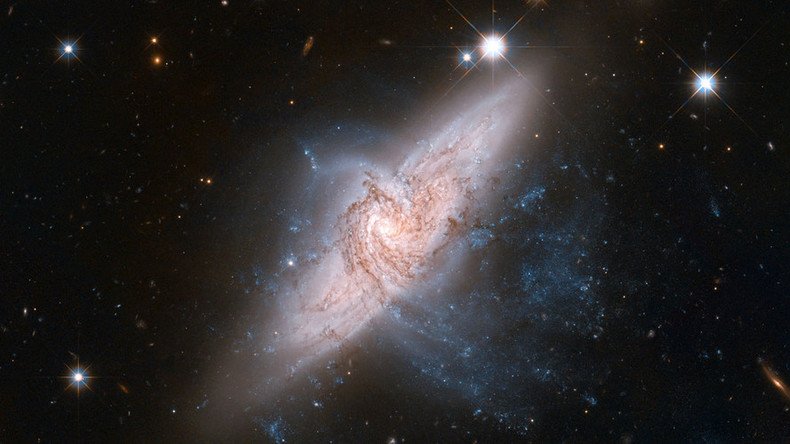Fit to burst: Black holes can’t gobble up more than 50bn suns, scientist says

Black holes can’t expand endlessly, and once they have swollen to 50 billion times the mass of our sun, they lose the discs of gas they use as a feeding ground, a UK scientist says.
Scientists say supermassive black holes exist at the center of nearly every galaxy. There is an area around them where gas settles into an orbiting disc, where the gas loses energy and falls inward, thus ‘feeding’ the black hole. However, these discs are unstable and sometimes crumble into stars.
Without a disc, a black hole isn’t able to grow – and can only expand if a star falls straight into it, or if it merges with another black hole.
It was previously thought a black hole could, in theory, grow so much it could swallow the stable part of the disc, and therefore destroy it; but scientists thought this would be extremely unlikely due to the large mass of the hole that would be required.
However, new findings hint that there could be an existing limit to the mass that would be needed for a black hole to destroy its outer edge and prevent a disc from forming.
Super-hungry black hole gobbles star at rate previously thought impossible http://t.co/BWUCW5EgY5
— RT (@RT_com) October 11, 2014Andrew King from the University of Leicester calculated that for a black hole to stop itself from growing, it would have to be as large as 50 billion solar masses. The largest black holes discovered have a mass of up to 40 billion solar masses.
READ MORE Rare & dying: Giant radio galaxy found 9mn light yrs away from Earth
Given how much mass black holes have gobbled up since the early days of the universe, scientists from Yale University, together with Ezequiel Treister from the University of Conception in Chile, have argued that some black holes could actually have grown to the size of nearly 50 billion solar masses.












